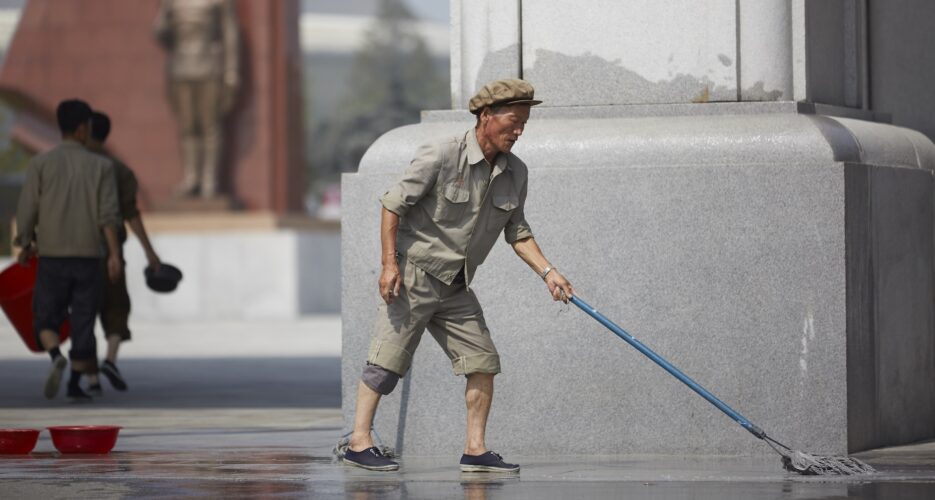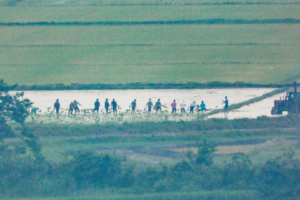As the clock strikes 6 a.m. each day in North Korea, residents emerge and diligently tend to the spaces around their homes and public locales. During the day, groups of women in their 40s and 50s commonly take care of city maintenance. They whitewash tree trunks to safeguard them from pests, mow grass in green areas using basic tools and repair pavements.
But these people are not employed as official city maintenance personnel; they are local residents, largely full-time housewives. Their work is unpaid, but not voluntary, and they are mobilized for these activities through neighborhood mutual surveillance groups, known as “inminban,” literally “people’s groups.”
As the clock strikes 6 a.m. each day in North Korea, residents emerge and diligently tend to the spaces around their homes and public locales. During the day, groups of women in their 40s and 50s commonly take care of city maintenance. They whitewash tree trunks to safeguard them from pests, mow grass in green areas using basic tools and repair pavements.
But these people are not employed as official city maintenance personnel; they are local residents, largely full-time housewives. Their work is unpaid, but not voluntary, and they are mobilized for these activities through neighborhood mutual surveillance groups, known as “inminban,” literally “people’s groups.”
Try unlimited access
Only $1 for four weeks
-
Unlimited access to all of NK News: reporting, investigations, analysis
-
Year-one discount if you continue past $1 trial period
-
The NK News Daily Update, an email newsletter to keep you in the loop
-
Searchable archive of all content, photo galleries, special columns
-
Contact NK News reporters with tips or requests for reporting
Get unlimited access to all NK News content, including original reporting, investigations, and analyses by our team of DPRK experts.
Subscribe
now
All major cards accepted. No commitments – you can cancel any time.










